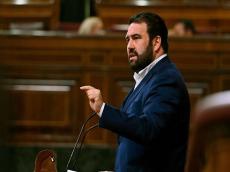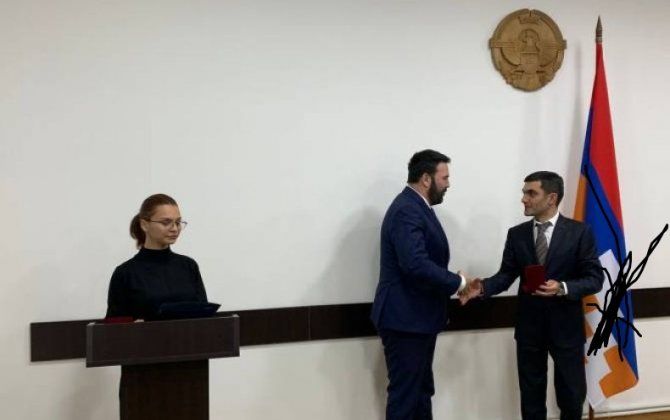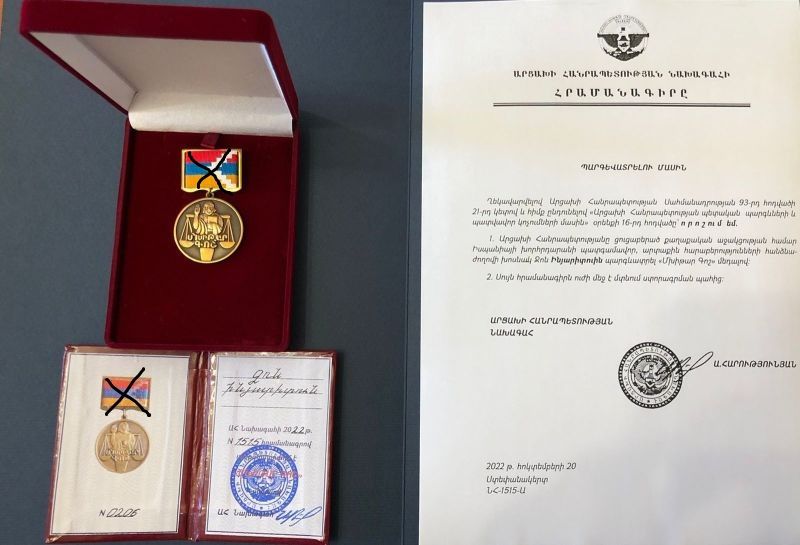|
|
TODAY.AZ / Politics
Spain betrays Azerbaijan by falling prey to Armenian manipulations
11 March 2024 [20:44] - TODAY.AZ

For a long time, Spain was one of the countries that supported Azerbaijan on the issue of Garabagh and condemned the Armenian occupation.
For example, in 1993, Spain voted in favour of 4 resolutions of the UN Security Council No. 822, 853, 874, and 884 regarding the Garabagh war. According to these resolutions, Armenian armed units had to leave the occupied Kalbajar, Aghdam, Fuzuli, Jabrayil, Gubadli, Zangilan, and other territories of Azerbaijan. That is, Spain voted in favour of the resolutions demanding that Armenia withdraw from the occupied Azerbaijani lands.
In the "Madrid principles" proposed by the Minsk Group in 2007 regarding the settlement of the Garabagh conflict, the withdrawal of Armenia and the so-called "Nagorno-Garabagh armed forces" from all the occupied territories around Garabagh was emphasised.
The support of this format by the Ministry of Foreign Affairs of Spain showed that the country supports the withdrawal of aggressive forces from the territory of Azerbaijan.
The Spanish Ministry of Foreign Affairs said in a statement published on May 1, 2015, about the unrecognised Nagorno-Garabagh that Spain does not consider the parliamentary elections scheduled to be held in Nagorno-Garabagh on May 3 as legitimate. The ministry stated that those elections have no validity.
"The separation of this territory is the result of the use of force, it is against international law and is not recognised by Azerbaijan," the statement added.
On May 25, 2016, the Minister of Foreign Affairs of Spain, Ignacio Ibanez, spoke about the Garabagh conflict during his meeting with Azerbaijan Defence Minister Zakir Hasanov in Spain. He said that Spain supports the format of the OSCE Minsk Group aimed at resolving the conflict.
Thus, Spain made many announcements and statements about the Armenian occupation of Azerbaijani lands.
However, in recent years, especially after the 44-day war, the liberation of Azerbaijani lands has caused a 180-degree change in Spain's position towards Azerbaijan.
In December 2021, an agreement was signed between Azerbaijan and Spain in Madrid, providing for the exchange of confidential information and the protection of this information.
The lower house of the Spanish Parliament (Congress) had not ratified the international agreement concluded with Azerbaijan and described Azerbaijan as an aggressor country.
This step by Spain created a shock effect on relations between the two countries. Spain, which has always expressed its support for Azerbaijan, seems to have betrayed its friend by falling prey to Armenian manipulations.
But we should not forget that after the declaration of independence of Catalonia, it was Spain that started the legal procedure against them, called this step separatism against the territorial integrity of the country, and succeeded in arresting and prosecuting the leader of Catalonia, Carlos Puchtemon.
But now it is the same Spain that ignores the attempt of the separatists in Garabagh on the territorial integrity of Azerbaijan, the genocide against the Azerbaijanis, and the trampling of the UN Charter and resolutions.
John Iñárritu, a member of the parliament, offered to show solidarity with the Armenian people, who faced "Azerbaijan's aggression".
It seems that John Iñárritu has been working on this plan for a long time, thus, the very next day he rushed to the leader of the separatist-terrorist regime, Arayik Harutyunyan, and was awarded the "Mkhitar Gosh" medal of the so-called state.


After that, the deputy said, "It was an honour for me to receive the Mkhitar Gosh medal from the republic of "artsakh". We will continue to support the right of Armenians to live in Artsakh, as well as the need for international recognition."
He knew very well how he hit the relations between Spain and Azerbaijan.
And now, the Spanish deputy, clearly showing his pro-Armenian position, declares that the international community should impose targeted sanctions or other punishments against the persons or organisations responsible for the destruction of the Armenian historical and cultural heritage of "Nagorno-Garabagh".
It is interesting that the Spanish government ignores the condition of Shusha Castle, Garabagh Khan's Palace, Sisernavang Monastery, Natavan Palace, and many other historical and cultural monuments destroyed by Armenians in Garabagh, worrying about the fake monuments of a so-called regime.
The fact that the Spanish deputy was awarded a medal by the so-called regime after his pro-Armenian speeches and clearly took a position against Azerbaijan is either a betrayal of the policy pursued by his country for many years, or he is a tool of the Spanish government to break friendly relations with Azerbaijan.
In both cases, it is unfortunate that Spain is trying to destroy relations with Azerbaijan in this way.
URL: http://www.today.az/news/politics/245863.html
 Print version
Print version
Connect with us. Get latest news and updates.
See Also
- 18 April 2025 [18:43]
Nearly 69 hectares cleared of mines in liberated Gazakh territories - 18 April 2025 [18:20]
Horadiz-Aghband railway line nears two-thirds completion - 18 April 2025 [14:41]
Separatists & Pashinyan - the farce continues - 18 April 2025 [14:31]
Khojaly victim testifies at Baku Military Court: “Madat Babayan’s gang tortured me” - 18 April 2025 [13:42]
Iranian President Pezeshkian to visit Azerbaijan with large economic delegation - 18 April 2025 [12:47]
Trial continues for Armenian-origin individuals accused of war crimes in Azerbaijani territories - 18 April 2025 [11:26]
Hikmat Hajiyev: “Azerbaijan restored sovereignty through correct and successful policy” - 18 April 2025 [11:11]
Collapse of "macaronism": Resignation of the "grey cardinal" of France may cause a chain reaction - 18 April 2025 [10:10]
Pashinyan made mistake that Yerevan regret - 17 April 2025 [15:00]
Azerbaijan, Slovenia forge new business ties with preliminary deals
Most Popular
 Separatists & Pashinyan - the farce continues
Separatists & Pashinyan - the farce continues
 4SIM signs MoUs with Chinese institutions to boost cooperation in green and industrial technologies
4SIM signs MoUs with Chinese institutions to boost cooperation in green and industrial technologies
 Antalya Diplomacy Forum becomes center of global dialogue
Antalya Diplomacy Forum becomes center of global dialogue
 A fat, nosy and bald hint that Armenia will remove claims against Azerbaijan from the Constitution
A fat, nosy and bald hint that Armenia will remove claims against Azerbaijan from the Constitution
 Collapse of "macaronism": Resignation of the "grey cardinal" of France may cause a chain reaction
Collapse of "macaronism": Resignation of the "grey cardinal" of France may cause a chain reaction
 Foreign diplomats tour liberated cities of Khankendi and Shusha
Foreign diplomats tour liberated cities of Khankendi and Shusha
 Paris hosts debut of Azerbaijan’s first AI art “Shusha”
Paris hosts debut of Azerbaijan’s first AI art “Shusha”
